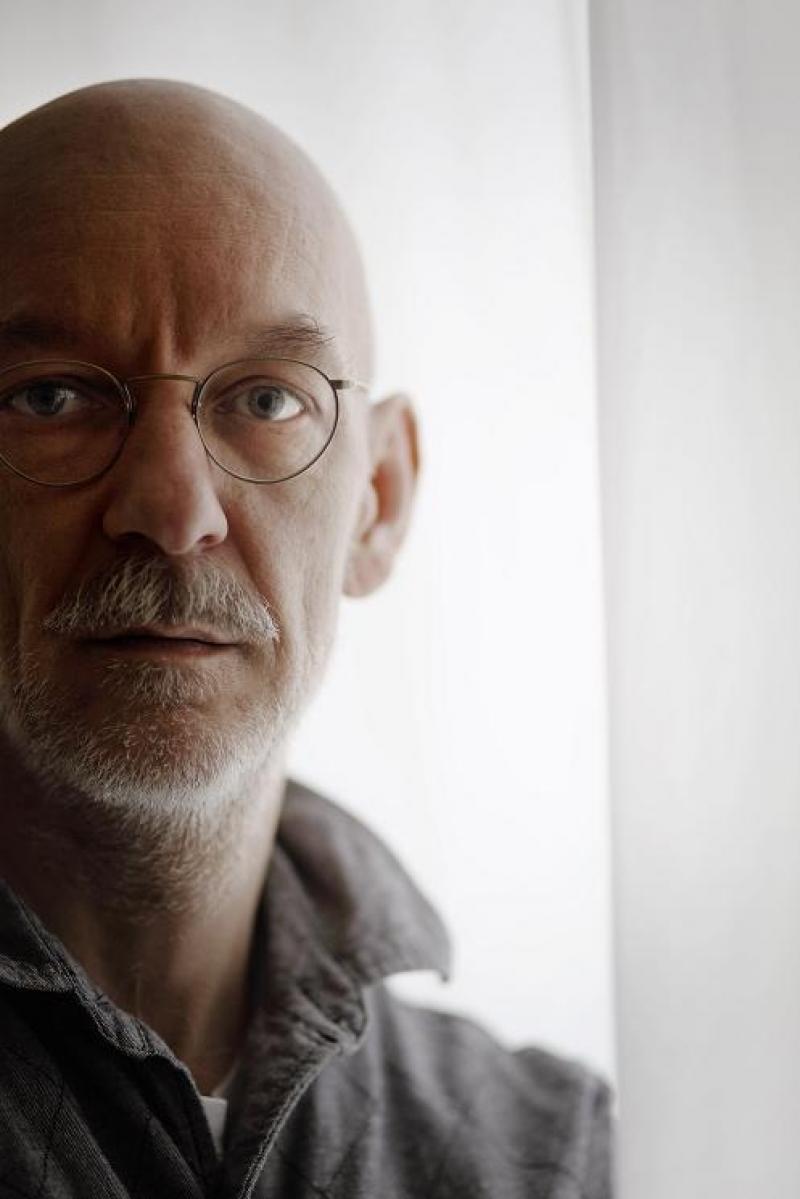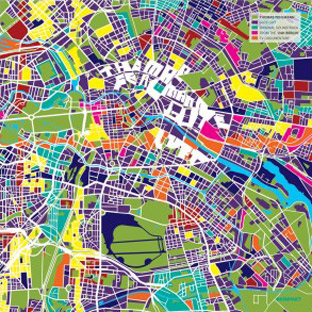Berlin Sounds: the not-so-new Bohemia | reviews, news & interviews
Berlin Sounds: the not-so-new Bohemia
Berlin Sounds: the not-so-new Bohemia
Another wave of electronic creativity from perpetually hip Berlin

“I'm moving to Berlin.” In artistic circles and especially those that include electronic musicians, over the past few years such a threat has become so commonplace as to be cliché. It's not without reason, though. For one, despite gentrification, Berlin has endless space (and empty industrial artistic “spaces”) and its cost of living is about a two-hundredth that of London. And just as importantly, it is more soaked in electronic music than anywhere else on the planet.
From the Weimar Republic, through West Berlin's defiant isolation, the city thrived on decadent nightlife; electronic experimental music was the lifeblood of the German underground from Stockhausen onwards, and come the simultaneous fall of the Wall and rise of acid house, the two combined into a techno culture that is rooted in the fabric of the city.
In the 1990s, when hard techno and rave ruled, this peaked with the ridiculous spectacle of parades of dayglo-clad ravers often numbering over a million cascading through the city in a yearly Love Parade. In the last decade, however, the soundtrack has been a much more rarefied minimal, pulsing, cerebral techno sound, and the culture has returned to rather more Bohemian roots. And its this that has attracted a great many British artists and musicians, including many of the more exploratory players in the UK's dubstep movement, for example Sam Shackleton and Paul Rose aka Scuba.
 The reason this is worth remark now is that there seems to be a flurry of activity from the scene. Born-and-bred Berliner Ellen Allien releases her fifth album Dust – a sophisticated concoction that incorporates New Order-style indie into the Berlin techno framework – next month, and Marcel Dettmann, resident DJ for the inhabitants of dark corners in the notorious Berghain club has his debut collection of altogether more insalubrious techno due next week. Scuba has just released his second album of immersive Berlin-infused dubstep; but most notable is the release of veteran experimenter Thomas Fehlmann's Gute Luft album (pictured right) and his appearance as part of a Berlin Sounds evening at the Queen Elizabeth Hall this Friday.
The reason this is worth remark now is that there seems to be a flurry of activity from the scene. Born-and-bred Berliner Ellen Allien releases her fifth album Dust – a sophisticated concoction that incorporates New Order-style indie into the Berlin techno framework – next month, and Marcel Dettmann, resident DJ for the inhabitants of dark corners in the notorious Berghain club has his debut collection of altogether more insalubrious techno due next week. Scuba has just released his second album of immersive Berlin-infused dubstep; but most notable is the release of veteran experimenter Thomas Fehlmann's Gute Luft album (pictured right) and his appearance as part of a Berlin Sounds evening at the Queen Elizabeth Hall this Friday.
The show is headlined by To Rococo Rot, creators of minimalist guitar grooves and producers of St Etienne's Sound Of Water album, and bearers of the Krautrock flame (to prove it they will be joined by Hans Joachim Irmler, member of legends of the 1970s German cosmic music scene Faust). Also on the bill are Vladislav Delay aka Finn-in-Berlin Sasu Ripatti, and Gudrun Gut, whose pedigree goes back to the industrial and post-punk scenes of 1980s West Berlin. But Fehlmann is perhaps the most interesting; over 30 years in music, including work with the legends of Detroit techno, and time as a member of British ambient pioneers The Orb, he has spanned dozens of underground scenes centred on Berlin, and Gute Luft (although released on the Cologne-based Kompakt label co-owned by Wolfgang Voigt) is his summation of those experiences.
Conceived as the soundtrack to a TV documentary about the history of Berlin's music scene, but condensed into individual episodic tracks, it is packed with sly passing references to the musical scene and to Fehlmann's own output, but works entirely on its own as a joyous, weightless, musical narrative. It is proof positive that electronic music allows artists to mature and develop, its lightness of touch and eager exploration feeling downright youthful even as it is filled with complex adult emotions. It is, and Fehlmann's appearance on Friday will hopefully be, the absolutely perfect introduction to anyone curious about why electronic music is relevant in 2010, and why so many young creative minds are still decamping to Berlin.
Add comment
The future of Arts Journalism
You can stop theartsdesk.com closing!
We urgently need financing to survive. Our fundraising drive has thus far raised £49,000 but we need to reach £100,000 or we will be forced to close. Please contribute here: https://gofund.me/c3f6033d
And if you can forward this information to anyone who might assist, we’d be grateful.

Subscribe to theartsdesk.com
Thank you for continuing to read our work on theartsdesk.com. For unlimited access to every article in its entirety, including our archive of more than 15,000 pieces, we're asking for £5 per month or £40 per year. We feel it's a very good deal, and hope you do too.
To take a subscription now simply click here.
And if you're looking for that extra gift for a friend or family member, why not treat them to a theartsdesk.com gift subscription?
more
 'We are bowled over!' Thank you for your messages of love and support
Much-appreciated words of commendation from readers and the cultural community
'We are bowled over!' Thank you for your messages of love and support
Much-appreciated words of commendation from readers and the cultural community
 Hedda, Orange Tree Theatre review - a monument reimagined, perhaps even improved
Scandinavian masterpiece transplanted into a London reeling from the ravages of war
Hedda, Orange Tree Theatre review - a monument reimagined, perhaps even improved
Scandinavian masterpiece transplanted into a London reeling from the ravages of war
 theartsdesk Q&A: director Kelly Reichardt on 'The Mastermind' and reliving the 1970s
The independent filmmaker discusses her intimate heist movie
theartsdesk Q&A: director Kelly Reichardt on 'The Mastermind' and reliving the 1970s
The independent filmmaker discusses her intimate heist movie
 Emma Doran, Leicester Square Theatre review - domestic life laid bare
Irish comic mixes sentiment and sauciness
Emma Doran, Leicester Square Theatre review - domestic life laid bare
Irish comic mixes sentiment and sauciness
 Lily Allen's 'West End Girl' offers a bloody, broken view into the wreckage of her marriage
Singer's return after seven years away from music is autofiction in the brutally raw
Lily Allen's 'West End Girl' offers a bloody, broken view into the wreckage of her marriage
Singer's return after seven years away from music is autofiction in the brutally raw
 The Assembled Parties, Hampstead review - a rarity, a well-made play delivered straight
Witty but poignant tribute to the strength of family ties as all around disintegrates
The Assembled Parties, Hampstead review - a rarity, a well-made play delivered straight
Witty but poignant tribute to the strength of family ties as all around disintegrates
 theartsdesk Q&A: director Stefano Sollima on the relevance of true crime story 'The Monster of Florence'
The director of hit TV series 'Gomorrah' examines another dark dimension of Italian culture
theartsdesk Q&A: director Stefano Sollima on the relevance of true crime story 'The Monster of Florence'
The director of hit TV series 'Gomorrah' examines another dark dimension of Italian culture
 Blu-ray: Wendy and Lucy
Down-and-out in rural Oregon: Kelly Reichardt's third feature packs a huge punch
Blu-ray: Wendy and Lucy
Down-and-out in rural Oregon: Kelly Reichardt's third feature packs a huge punch
 The Monster of Florence, Netflix review - dramatisation of notorious Italian serial killer mystery
Director Stefano Sollima's four-parter makes gruelling viewing
The Monster of Florence, Netflix review - dramatisation of notorious Italian serial killer mystery
Director Stefano Sollima's four-parter makes gruelling viewing
 Music Reissues Weekly: Joe Meek - A Curious Mind
How the maverick Sixties producer’s preoccupations influenced his creations
Music Reissues Weekly: Joe Meek - A Curious Mind
How the maverick Sixties producer’s preoccupations influenced his creations
 Bizet in 150th anniversary year: rich and rare French offerings from Palazzetto Bru Zane
Specialists in French romantic music unveil a treasure trove both live and on disc
Bizet in 150th anniversary year: rich and rare French offerings from Palazzetto Bru Zane
Specialists in French romantic music unveil a treasure trove both live and on disc
 Pop Will Eat Itself, O2 Institute, Birmingham review - Poppies are back on patrol
PWEI hit home turf and blow the place up
Pop Will Eat Itself, O2 Institute, Birmingham review - Poppies are back on patrol
PWEI hit home turf and blow the place up

Comments
...